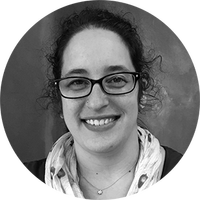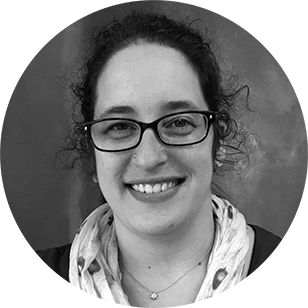No, Christmas is not secular
It can be deeply painful to be reminded that the traditions one loves are exclusionary to others


A free daily email with the biggest news stories of the day – and the best features from TheWeek.com
You are now subscribed
Your newsletter sign-up was successful
Christmas is (finally) upon us. After months of red-and-green evergreen decorations in every store, and an increasingly unbroken stream of Santa-centric pop songs in every public place, the annual American onslaught reaches its peak this week.
Every year, those of us who don’t celebrate Christmas find ourselves having the same debates over and over again, starting well before Thanksgiving and continuing into the New Year. Well-meaning friends, neighbors, and colleagues insist to us that we should not be bothered by the giant Christmas trees in every building lobby, or the Christmas music supplanting our usual radio fare. Christmas, the argument goes, is secular; therefore, everyone should be comfortable participating in it, whether or not they identify as Christian.
According to the Pew Research Center, Jews are the largest non-Christian religious group in the U.S. But we are far from alone: American Muslims, Buddhists, Hindus, and others are also excluded at Christmastime. And yet, Hanukkah is almost always framed as the default alternative to Christmas, and the pushback to secular Christmas tends to be dominated by Jewish voices. Of all the thinkpieces and blog posts I've read on the topic, the vast majority are by Jewish authors.
The Week
Escape your echo chamber. Get the facts behind the news, plus analysis from multiple perspectives.

Sign up for The Week's Free Newsletters
From our morning news briefing to a weekly Good News Newsletter, get the best of The Week delivered directly to your inbox.
From our morning news briefing to a weekly Good News Newsletter, get the best of The Week delivered directly to your inbox.
As an assimilated American Jew, I'm intrigued by this. It speaks to America's love of binaries, and our need to find one common antagonist for Santa Claus. (As I said to a friend recently, "Ah yes, the two genders: Christmas and Hanukkah.") But it also says a lot about privilege in the U.S.: who's granted it under what conditions, and how people react when we feel our privilege slipping away.
The very nature of privilege is that it's invisible to those who have it. When your identity and experiences are treated as the cultural and societal default, it's natural to assume that everyone else experiences the world the way you do. For those who grew up celebrating Christmas, it can be hard to conceive of decorated evergreen trees, Santa suits, "All I Want for Christmas is You" on the radio, as anything other than neutral symbols of the "magic" of the season.
Though Christmas arose from Christianity, it has taken on a life of its own in America. Not every American who celebrates Christmas identifies as Christian, or practices Christian religious observance. Even in my family of origin, though we did not celebrate Christmas, we put up strands of lights outside our house in winter, and my Brooklyn-raised father would talk about how magical New York City becomes at Christmastime.
So far, so secular. But much the same story can be told about Hanukkah — a minor Jewish holiday elevated to provide an American consumerist alternative to Christmas. And yet, American Hanukkah remains inextricably linked with the religious tradition from which it arose. When we see a tiny menorah next to a huge Christmas tree in an office window, or a few lonely bags of gelt in the "seasonal" aisle at the supermarket, we still think of these as Jewish first, and American second (if at all).
A free daily email with the biggest news stories of the day – and the best features from TheWeek.com
Because America loves a binary, we tend to view privilege as an all-or-nothing state: either you have it, or you don't. Since it's easier to see other people's privilege than our own, having the primacy of one's experiences questioned can feel tantamount to a threat. And it can be deeply painful to be reminded that the traditions one loves are exclusionary to others. Easier, then, to think of Christmas as something religion-less, and therefore open to all.
But what about the Jewish side of the story? Why is our identity placed in opposition to the Christmas-celebrating majority? There's privilege at work here, too — privilege that I am only just becoming aware of myself.
On the spectrum of American Jewishness, I'm relatively assimilated. I don't keep kosher, or go to synagogue, or even consider myself religious. I celebrate Hanukkah and Passover, and have a nodding acquaintance at best with most other Jewish holidays. I fit the Ashkenazi Jewish phenotype, but I also have the fair skin and the life experiences associated with whiteness. (I'm not alone in this: According to a recent study, the vast majority of Jews in the U.S. identify as white.)
So the Christmas season means being actively, relentlessly confronted with the gaps in my privilege. For most of the year, I can be relatively secure in the knowledge that I belong — that I'm welcomed and safe in the only country I've ever called home. But when Christmas rolls in, as thick and all-encompassing as the San Francisco fog I've known all my life, I'm suddenly — precariously — other.
Christmas is an inescapable reminder that my Jewish identity confers both privilege and marginalization. I've grown up with the hereditary trauma of Jewishness, the millennia-deep awareness that our identity could, at any time, be used to displace or kill us. And, it must be said, much of that anti-Semitic oppression throughout history has come from our Christian neighbors.
These are not idle fears. The current presidential administration came to power on a long-building wave of white supremacy, which treats Christianity as the national default and traffics in anti-Semitism as core to its ideology. Waves like this have broken on us before, and will again. So, for us, Christmas is neither neutral nor secular. It is firmly associated with a religious tradition that erases our existence at best, and oppresses us at worst.
Unlike other religious minorities in the U.S., Jews like me have been granted enough privilege to be newly rattled every year when Christmas rolls in, and to be treated as authoritative anti-Christmas voices when we do speak up. So here we are, shouting across a religious and cultural divide, while our Christmas-celebrating peers do the same. All of us wrestling, ultimately, with what it means to be truly comfortable in our identity as Americans.
Let me be clear: There is nothing wrong with celebrating Christmas, or with finding deep personal joy in the Christmas season. Celebrating Christmas does not necessarily make one complicit in oppression. But expecting others to do the same, to erase our own experiences for the sake of preserving the magic of the season, is oppressive. Though many Americans can happily compartmentalize religious Christian observance and secularized Christmas cheer, not all of us have the luxury of doing so.
For many of us, Christmas is not, and never has been, truly secular. And when we argue over whether someone is right to be put off by Christmas trees in public spaces, we risk losing sight of what's really at stake.
Want more essential commentary and analysis like this delivered straight to your inbox? Sign up for The Week's "Today's best articles" newsletter here.
Zoe Fenson is a freelance writer based in the San Francisco Bay Area. Her writing has appeared in Longreads, Narratively, The New Republic, and elsewhere. When she's not writing, you'll find her doing crossword puzzles in cocktail bars or playing fetch with her cat.
-
 How the FCC’s ‘equal time’ rule works
How the FCC’s ‘equal time’ rule worksIn the Spotlight The law is at the heart of the Colbert-CBS conflict
-
 What is the endgame in the DHS shutdown?
What is the endgame in the DHS shutdown?Today’s Big Question Democrats want to rein in ICE’s immigration crackdown
-
 ‘Poor time management isn’t just an inconvenience’
‘Poor time management isn’t just an inconvenience’Instant Opinion Opinion, comment and editorials of the day
